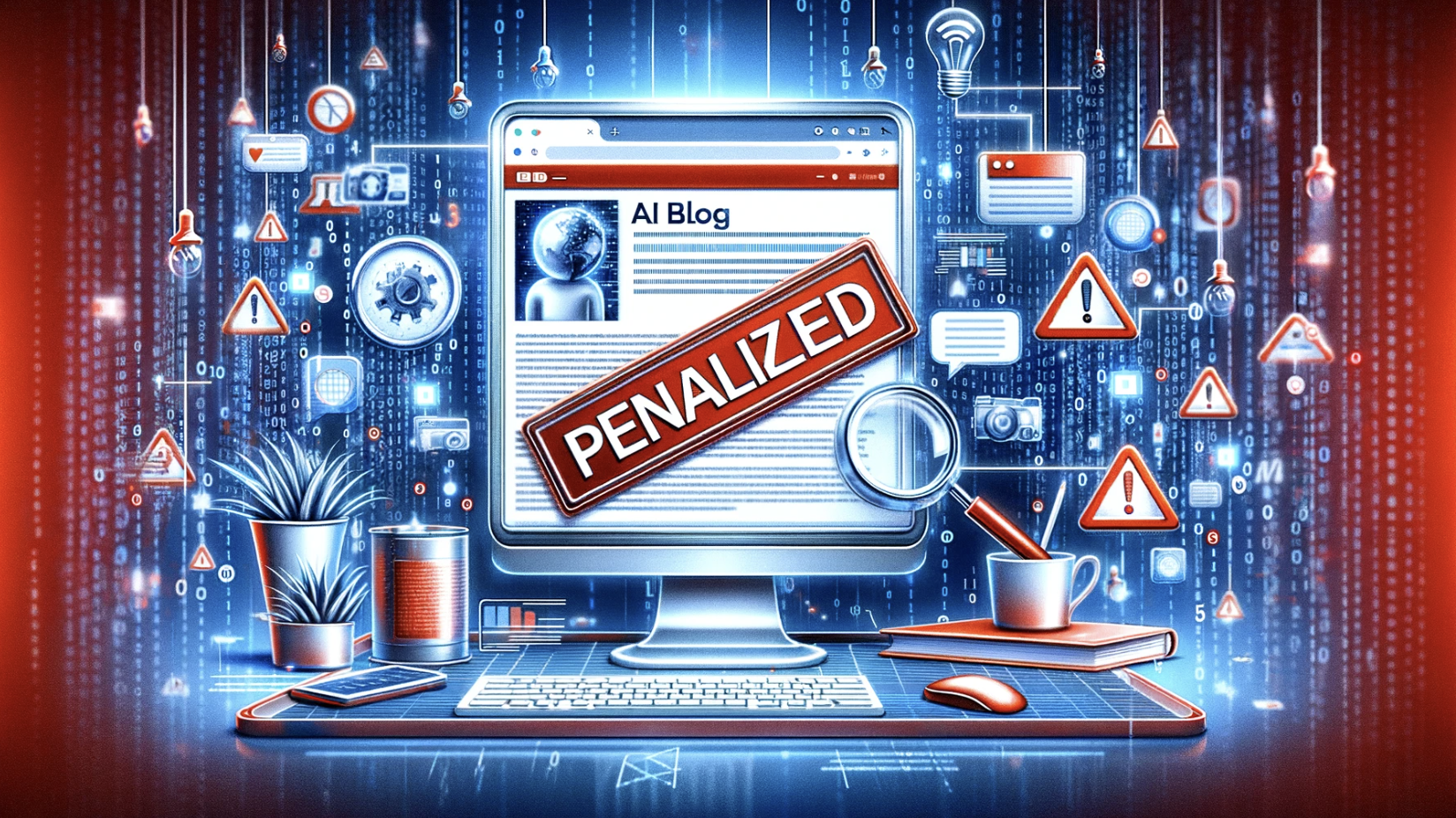
“Is your site packed with AI-generated content? Google’s March 2024 core update is sending shockwaves through the publishing world. Get ahead of the curve and protect your traffic with these essential strategies”
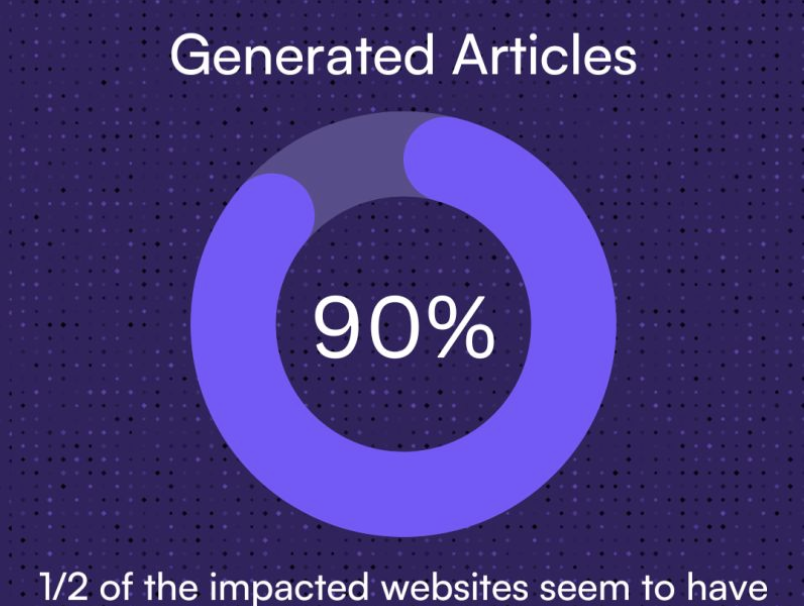
Google is cracking down on scalable AI content: The consistent theme is a clear message from Google: prioritizing scalable, low-quality AI content over genuine value is a recipe for trouble. This aligns with the core update focus on rewarding E-E-A-T.
Manual actions are increasing: Google’s willingness to hand out de-indexation penalties shows they treat this with the same severity as spam. This isn’t just an algorithmic adjustment; sites are being actively targeted.
The AI content threshold is high: The Originality.AI study (50% of de-indexed sites with 90% AI content) suggests you can’t ‘hide’ excessive AI output. Google’s algorithms are improving their ability to detect it.
Sites with a checkered past are vulnerable: Sites already hit by the March Core Update are at even higher risk now. Pre-existing penalties make you a prime target for scrutiny.
Quality Rater Guidelines are your roadmap: Google’s update here tells us exactly what they’re training their evaluators to look for. The QRG isn’t a ranking algorithm but provides a blueprint of what Google’s human evaluators are instructed to look for. The recent updates strongly emphasize content demonstrating E-E-A-T (Expertise, Experience, Authoritativeness, and Trustworthiness).
The updates to the QRG signal a broader philosophical shift in how Google assesses content. Publishers must move away from a keyword-centric approach and towards genuinely serving users and demonstrating genuine expertise.
While AI tools have their use, the recent de-indexing wave highlights a few major problems that are leading to Google penalties:
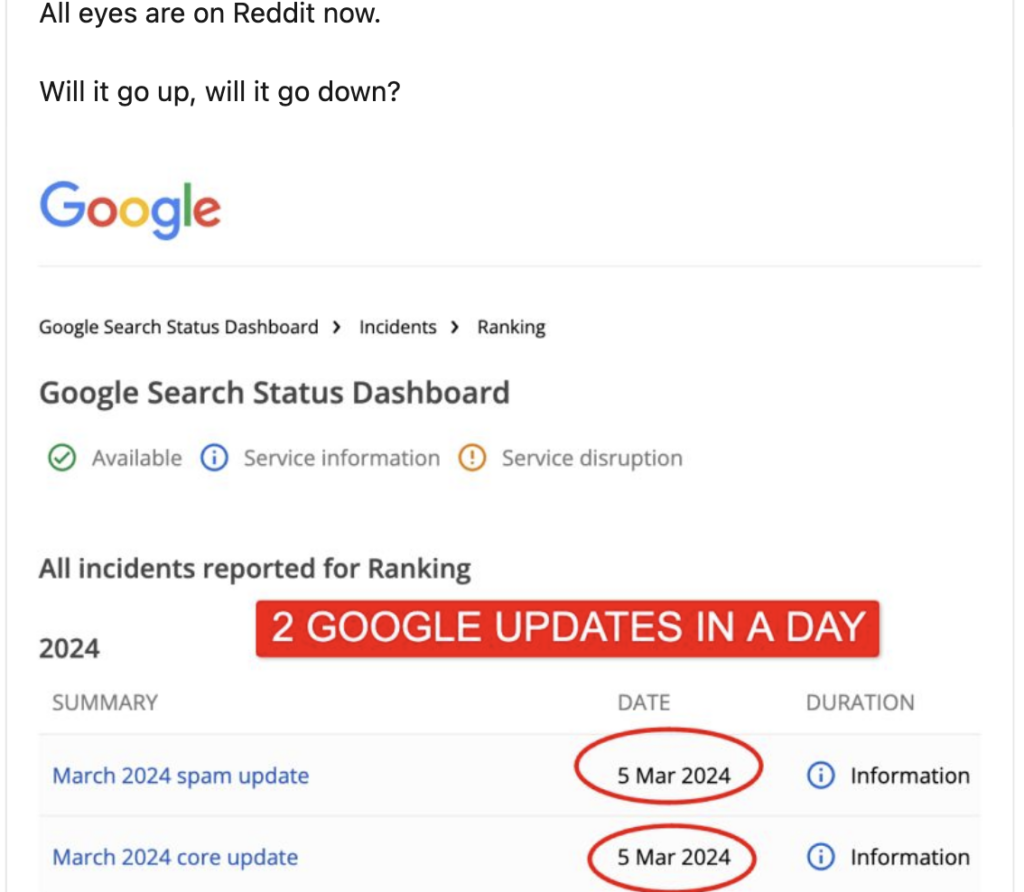
Publishers scrambling to fix penalties should note that Google has reportedly set a May 5th deadline. Sites heavily reliant on AI-generated content need immediate action to regain good standing. Failure to make substantial edits to existing AI-generated content could result in continued penalties.
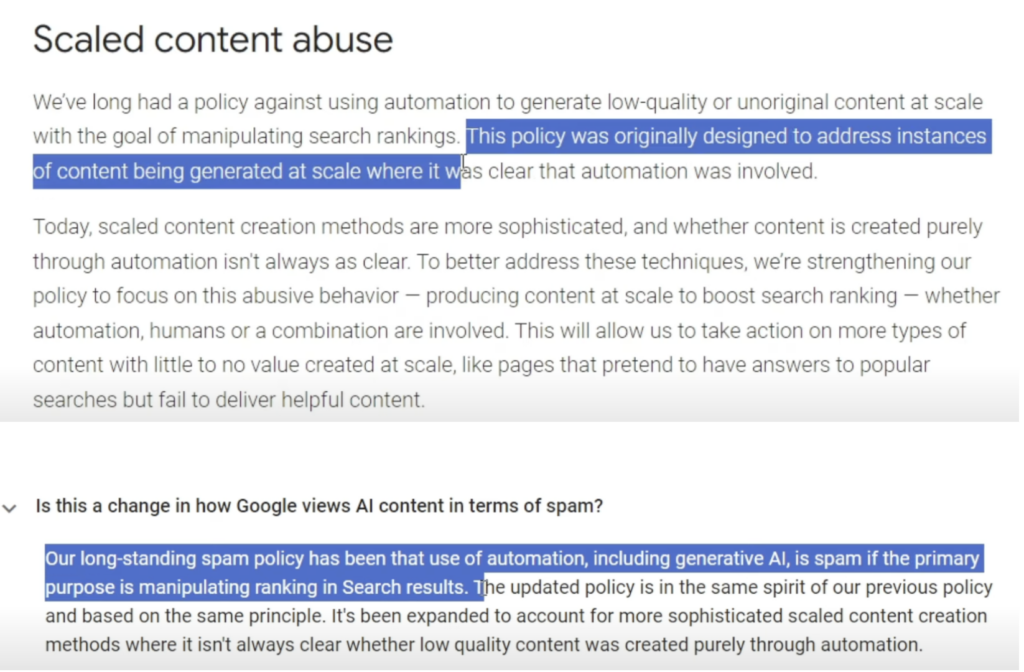
It’s important to note that the March 2024 update isn’t just targeting AI content. There are strong indications that Google has intensified its crackdown on scale content abuse via AI. Reports suggest over 800 plus sites have been de-indexed quickly due to a mix of spammy AI-generated content and tactics like:
Parasite SEO involves using other platforms (like LinkedIn or Medium) with established authority to host low-quality content that links to your leading site.
While it might seem tempting to leech off established platforms, Google is wise to do this. Their algorithms are increasingly adept at spotting thin, spammy content, even on reputable sites. Association with such content can harm your own site’s reputation. Furthermore, you cannot control the host platform—it can change its rules or delete your content anytime.
Alternatives: Focus on guest posting on truly relevant, high-quality blogs within your niche, or consider platforms like Medium with clear policies around content quality and link attribution. These offer exposure without the same reputation risks.
Expired Domain abuse involves purchasing expired domains with pre-existing backlinks to artificially boost your site’s authority.
Google can usually identify this tactic. The expired domain’s history matters – if spammy or penalized previously, its backlink profile may be worthless or even harmful. Plus, if the old domain’s topic was wildly different from yours, the backlinks become irrelevant, likely having no positive impact.
Alternatives: Invest the time and effort into building authoritative backlinks organically. This involves creating valuable content that other sites naturally want to link to or pursuing outreach for collaborations and guest features.
These tactics are prime examples of the ‘shortcut’ mentality that Google’s March 2024 update is actively combatting. In short, they might offer a deceptive boost, but the long-term consequences for your site’s reputation and visibility can be disastrous.
This isn’t just about publishers doing the bare minimum. This Google update is an opportunity: sites that genuinely demonstrate quality, originality, and expertise will be the ones that thrive in the long term. You need to:
If you’ve received a manual action or suspect algorithmic penalties related to the March 2024 update, swift action is crucial, especially in light of the May 5th deadline.
Identify the Problem: First, pinpoint the core issues causing the penalty.
Make Comprehensive Fixes: Don’t just try to patch things up. This is a chance to genuinely overhaul your content and SEO practices:
Submit a Reconsideration Request: Once you’ve made significant changes, you can submit a formal reconsideration request to Google. This includes:
There’s No Guarantee: Google isn’t obligated to remove a penalty even if you’ve made fixes. However, a well-documented and sincere reconsideration request increases your chances.
Prevention is Key: The best defense is proactively creating high-quality, user-focused content and avoiding tactics that Google now actively penalizes. This might feel like a setback right now, but use it as an opportunity to build a more sustainable and resilient website for the long haul.
For help with Ad Revenue Optimization, Get started here.

With over ten years at the forefront of programmatic advertising, Aleesha Jacob is a renowned Ad-Tech expert, blending innovative strategies with cutting-edge technology. Her insights have reshaped programmatic advertising, leading to groundbreaking campaigns and 10X ROI increases for publishers and global brands. She believes in setting new standards in dynamic ad targeting and optimization.
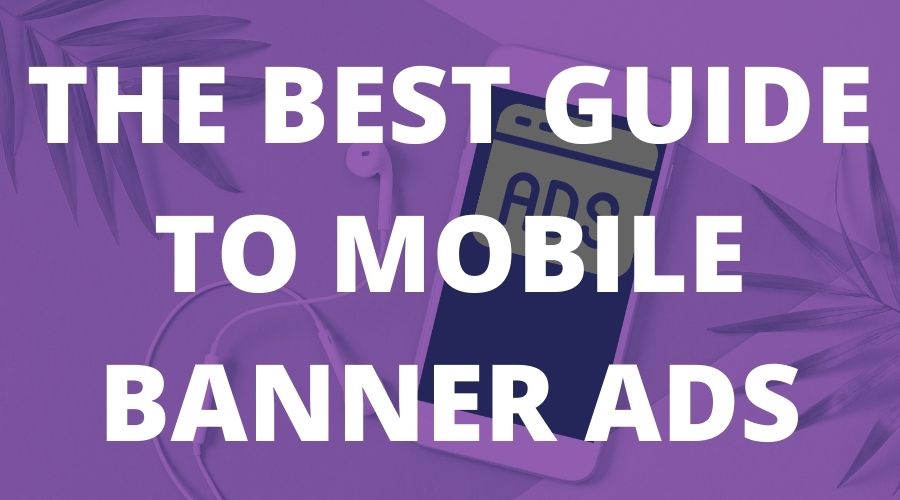
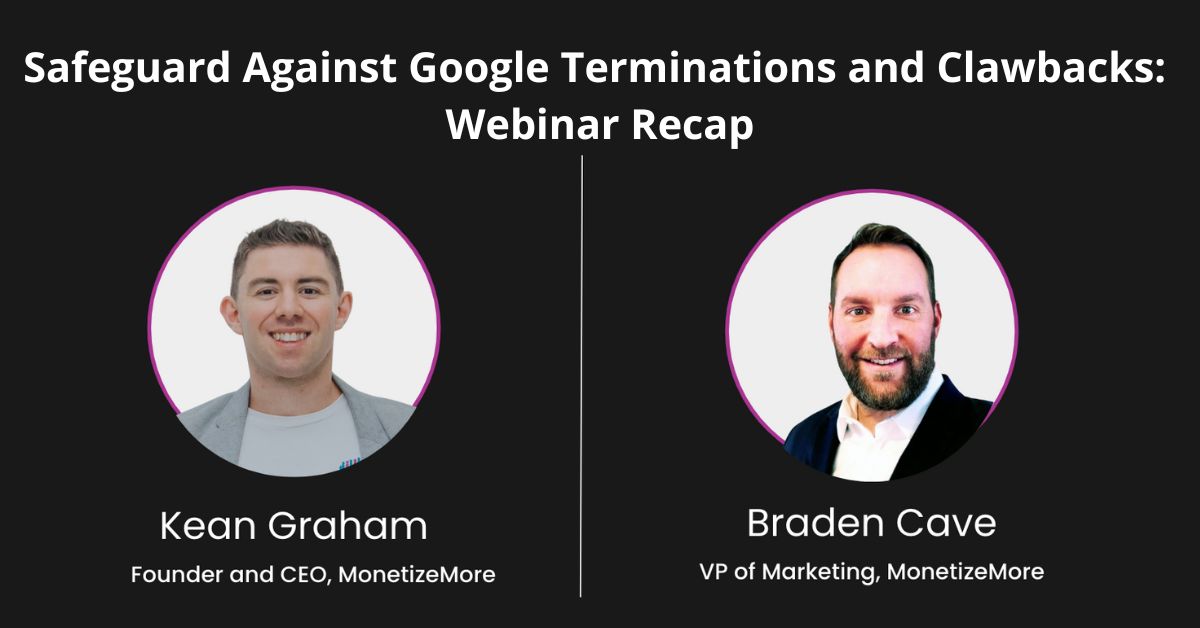
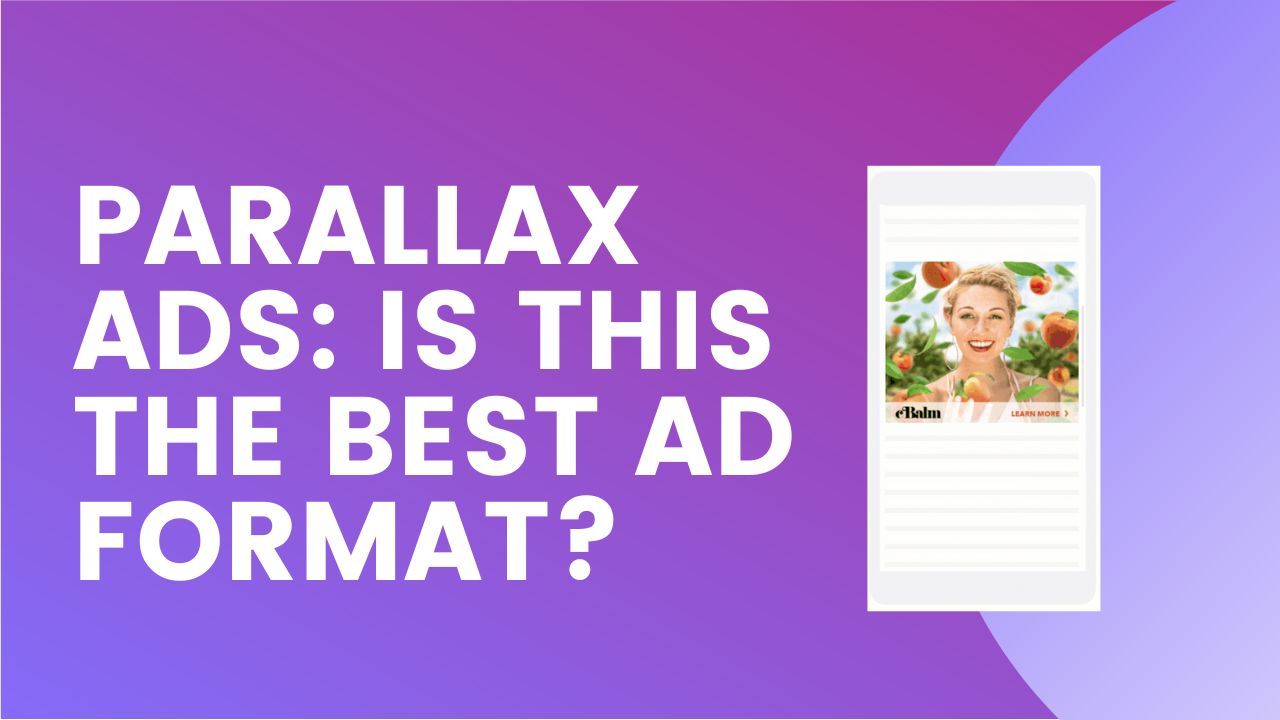
10X your ad revenue with our award-winning solutions.